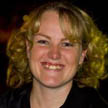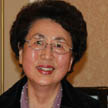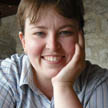I’m a Scientist is like school science lessons meet the X Factor! School students choose which scientist gets a prize of $1000 to communicate their work.
Scientists and students talk on this website. They both break down barriers, have fun and learn. But only the students get to vote.
This zone is the Disease Zone. It has scientists studying the causes and processes of illness . Who gets the prize? YOU decide!









Good question minheesunwoo. Apart from our DNA everyones blood is a little bit different based on their blood groups. When you hear of blood groups most people think of ABO positive and negative groups, which are only 2 blood grouping systems, in reality there are around 30 blood group systems!
A blood group is how a person blood is classified based on things called antigens which are on the surface of the red blood cells. These antigens can be made of proteins, carbohydrates, glycoproteins or glycoproteins, depending on which blood group system we are talking about. Sometimes these blood group antigens can be found on other type of body tissues as well (which can become important especailly when a patient is having an organ transplant or becoming a donor for a transplant). In the 30 blood groups over 600 antigens have been found, but many of them are extremely rare and can often be found only in certain ethnic groups.
If a person is exposed to an antigen (for example from a blood transfusion) they can develop antibodies to that antigen. That mean that if they get exposed to that antigen again their immune system will see it as an invader and destroy it. Now this is a good thing if the invader is somthing like bacteria, but not so good if its blood for a transfusion!
When we are testing in a pathology lab we test the ABO blood group by checking the patients red blood cells for A or B antigens (type O people have no ABO group antigens on their cells), adn then we double check the results by using control red blood cells that we know are group A or group B with the patients serum. Serum is where your antibodies are – we like to know that we are getting the ABO group right! The next most important blood group is the Rhesus group, which you have probably heard of called positive or negative. There are around 50 Rhesus antigens, but we only test for 5 – C, c, E, e and D and its the “D” that makes you ‘positive’ or ‘negative’.
If the ABO or Rhesus groups are not matched correctly when a transfusion is done something called a haemolytic transfusion reaction can occur – which basically means that the patients body sees the new blood as being an invader and destroys it, often almost immediatley like an acute allergic reaction.
Where things get more complicated is when people have antibodies to other blood group systems as well. This can happen in patients who have regular transfusions because they get exposed to a wide variety of antigens from donor blood. Some other blood groups that we check for are called Kell, Duffy, MNS, Kidd, Cw, and Lewis. We use a pool of red cells with all these antigens on them and mix them with the patient’s serum to check for any reactions – a reaction means they have some sort of antibody we need to identify, because we will then need to only transfuse them with blood that is NEGATIVE for that antigen. For example, if someone has an anti-kell antibody they can only have kell antigen negative blood.
So everyones blood is a little bit different, with slightly different antigens all depending on your genes. As you grow older and and get exposed to different bacteria and possibly (but hopefully not!) blood products you might end up with antibodies to certain blood anitigens too, just to make you blood that little bit more different again.
1